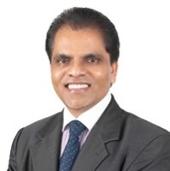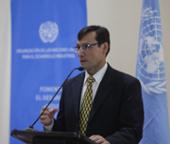Agenda
Please note that all times are given in British Standard Time (BST)
-
- Session 1: E-waste, batteries and eco-design
-
E-waste approaches in Asia: Requirements from China, Singapore, Japan, South Korea and India
-
Metals sector perspective on the draft EU battery regulation
-
Product recycling regulations and how they are enforced in Europe
- An overview of recent enforcement activity conducted by European regulators against companies not complying with the Extended Producer Responsibility (EPR) legal obligations for sales of their products in EU Member States.
- Focus on how the EU regulators encourage companies to report competitors for non-compliance to WEEE, batteries and packaging recycling regulations, including competitors selling products via online web stores.
-
New European draft Battery Regulation
The new draft Batteries Regulation updating the existing Batteries Directive which dates back to 2006 is now under discussion by the European Parliament and Council. This is the first initiative coming out of the Circular Economy Action Plan and it touches upon the entire lifecycle of the product. The Regulation aims at ensuring that all batteries placed on the EU market are sustainable, circular, high-performing and safe. This presentation is going to focus on impact of the new proposed requirements for the portable batteries segment.
-
Q&A
-
Break
-
Emerging issues for e-waste requirements in Latin America, including e-waste take back regulations
 Carolina Quadri
Latin America Producer Responsibility Sr. Consultant - Global Product Compliance and Environmental Affairs, Dell, Argentina
Carolina Quadri
Latin America Producer Responsibility Sr. Consultant - Global Product Compliance and Environmental Affairs, Dell, Argentina -
Strengthening of national initiatives and enhancement of regional cooperation for the environmentally sound management of POPs in waste of electronic or electrical equipment (WEEE) in Latin-American Countries
This session discusses the approach, design and current status of the UNIDO-GEF project for the environmentally sound management of WEEE in Latin America. Covering 13 participating countries, it is currently the largest project of its kind, in area and population served. Its emphasis is on the development of regulations and specific actions that tackle Persistent Organic Pollutants (POPs) present in WEEE.
-
Electronics, ICT, and the EU’s Sustainable Products Initiative
Electrical and electronic equipment and information and communications technology (ICT) are identified as key product value chains in the EU’s Circular Economy Action Plan and as priority products within its Sustainable Products Initiative. Join us to learn more about these policy activities and the important role of the electronics industry in shaping these policies to enable us to continue to build electronics better.
-
The future of ecodesign for the circular electronics economy
- This presentation will review highlights from the iNEMI Eco-Design series, focusing on best practices and lessons learned from the experts who shared how their organisations are implementing innovative eco-design work.
- Eco-design principles seek to minimise the environmental impact of products and services over their life cycle. iNEMI’s Eco-Design for Circular Electronics Economy series, created in conjunction with partners IPC and Fraunhofer IZM, comprised three interactive webinars featuring experts from leading organizations that are accomplishing innovative/beyond-compliance eco-design work.
- We will look at three key areas that were identified from these sessions - the need for collaboration, the fact that there are many things you can do now and what innovations/strategies might also be needed. Speakers from the series included Nokia, Samsung, Google, ADVA Optical, Fairphone and Schneider Electric.
-
Q&A
Additional panelist:
 Julio Vargas
Global Battery Program Manager, Center of Excellence for Global Product Environmental Compliance, IBM
Julio Vargas
Global Battery Program Manager, Center of Excellence for Global Product Environmental Compliance, IBM -
Break and sponsor workshops
-
Sponsor workshop from Sphera: Manage compliance to recycling regulations in Europe and North America
Sphera EC4P have developed a “One, Two, Three” step process to help you implement a robust global E-waste, Batteries & Packaging compliance program:
- Identify your compliance exposure with EC4P’s online Compliance Risk Map, country risk profiles and accompanying information resources
- Stay on top of the expanding and evolving recycling laws applicable to your products with EC4P’s customisable Regulatory Monitoring Service
- Let EC4P’s expert consultants and best-in-class software guarantee your global compliance program with our Managed Compliance Services
- Session 2: Circular economy including Circular Electronic Partnership initiative
-
Moderator:
-
Circular Electronic Partnership initiative: An overview
-
Circular economy and the electronics industry: Insights from India
- Key summary of recent policy paper ‘Circular economy in electronics and electrical sector’ – roadmap, strategies, policy tools for transitions
- Exploring and discussing opportunities and challenges of circular economy in electronics industry
- How to engage formal and informal sectors when implementing Circular Economy in electronics industry
-
EU Circular economy action plan
 Mattia Pellegrini
Head of Unit, Waste Management and Secondary Materials, Circular Economy and Green Growth, Directorate-General for Environment, European Commission
Mattia Pellegrini
Head of Unit, Waste Management and Secondary Materials, Circular Economy and Green Growth, Directorate-General for Environment, European Commission -
Q&A
-
Safe and circular electronics: Including an overview of the Cradle to Cradle Certified Product Standard
-
Balancing ambition and practicality in the circular economy: Lessons learned from recycling effort
-
Q&A
-
Close of day two














